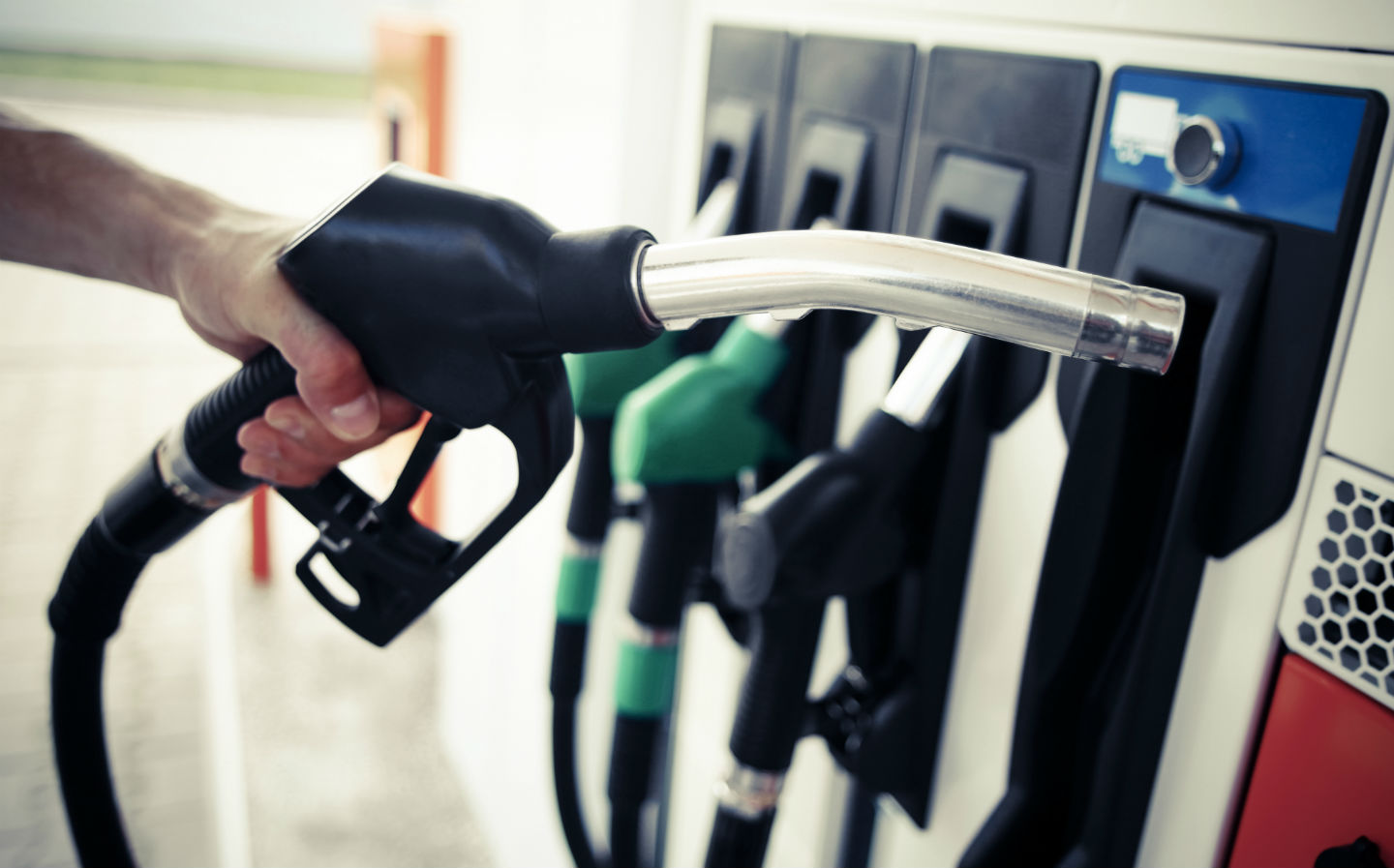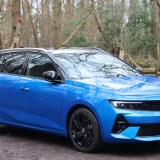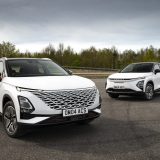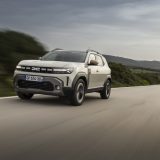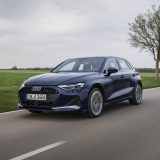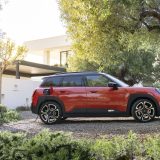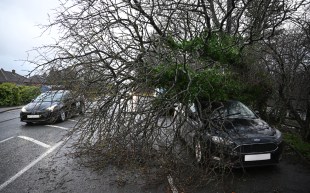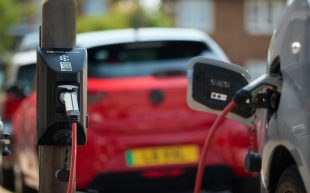2035 petrol and diesel car ban: 12 things you need to know
Will you have to scrap your car, what will happen to its value now and other questions answered
The government’s ban on the sale of new petrol and diesel cars will come into effect from 2035, pushed back from the original target of 2030 by Prime Minister Rishi Sunak.
From 2035, those buying new cars will have a choice of any vehicle that produced zero emissions while in use, which will predominantly mean battery-electric vehicles but doesn’t exclude alternative options such as hydrogen fuel cell models.
Whatever choice new car buyers make under the combustion engine ban, one option they won’t have is that of buying a vehicle powered by fossil fuels.
The government has been tightening the timeframe for a ban on petrol and diesel cars since it first announced the idea in July 2017, when it proposed 2040 as the start date. In October 2018, the Business, Energy and Industrial Strategy Committee described that plan as “vague and unambitious”.
In February 2019 the prime minister, Boris Johnson, said he would bring forward a ban on new petrol and diesel car sales from 2040 to 2035, or even sooner if a “faster transition is feasible”, and confirmed it would include hybrid and plug-in hybrid vehicles.
In November 2020, Johnson confirmed in a newspaper column that the government was bringing the ban on the sale of petrol and diesel cars forward to 2030, though hybrids will be unaffected until 2035, provided they’re capable of achieving “significant” zero-emissions distances. The ban formed part of what Johnson refers to as a “green industrial revolution,” creating, he said, a low-carbon economy and millions of new jobs.
In September 2023, however, prime minister Rishi Sunak announced that he is delaying the ban on new petrol and diesel cars to 2035, to ease the burden on motorists during the cost of living crisis. He called the move “pragmatic, proportionate and realistic”.
With a lot still left to do by 2035 by both the government and the industry in convincing motorists to make the switch to electric and in massively increasing the extent of the UK’s public charging infrastructure, here are the 12 things you need to know about the ban on petrol and diesel cars.
1. Why are new petrol and diesel vehicles being banned?
The petrol and diesel car ban is expected to reduce greenhouse gas emissions and improve local air quality. Petrol and diesel cars emit CO2 and Britain has a legal target to cut greenhouse gases to net zero by 2050.
Diesel vehicles produce higher levels of nitrogen oxides and particulate matter, which have been linked to increased risk of respiratory illnesses, lung cancer, heart disease and many other conditions. According to a report from the Royal College of Physicians, traffic fumes are contributing to the early deaths of an estimated 40,000 people in the UK.
These emissions can be reduced via modern exhaust systems and additives, such as AdBlue, but electric cars are still cleaner as zero emissions are produced at point of use — except particles from tyres and brakes. Electric cars are even cleaner when they are manufactured and recharged using energy produced using renewable sources, such as wind and solar.
Citing similar reasons, the EU announced in 2022 that it would follow suit with a ban on the sale of new petrol and diesel cars, from 2035.
2. What are the rules on hybrid cars?
Hybrids were to be banned from sale in new car showrooms from 2035 — five years after the original target for pure petrol and diesel models — though at the time of writing it’s unclear how Sunak’s delay on petrol and diesel will affect hybrid models.
Hybrids come in a number of forms but basically they combine an electric motor with a petrol or diesel engine for greater efficiency. Plug-in hybrids have a medium-sized battery and can be recharged for up to around 50 miles of electric motoring before the engine is needed.
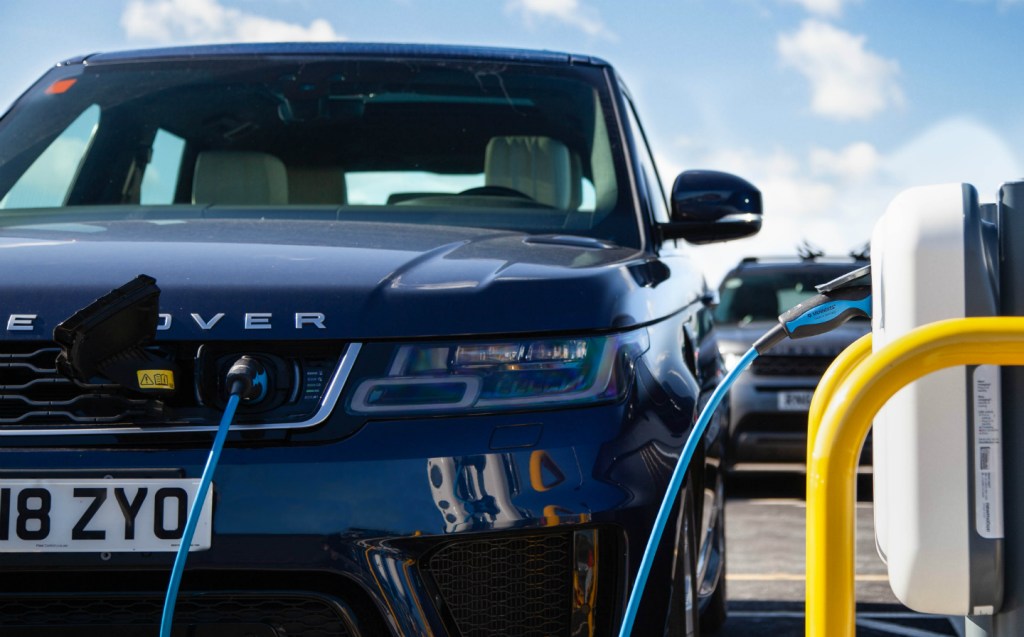
Boris Johnson said the only hybrids that will be able to be sold between 2030 and 2035 are those “that can drive a significant distance when no carbon is coming out of the tailpipe”, meaning that manufacturers would have need to abandon mild hybrids and increase the range of their plug-in hybrid models by 2030. However, under Sunak’s plans all new hybrids now have a reprieve until at least 2035.
3. Are trucks and other commercial vehicles included in the petrol and diesel ban?
Yes, the sale of new diesel vans will be banned from 2035 and diesel lorries will be phased out.
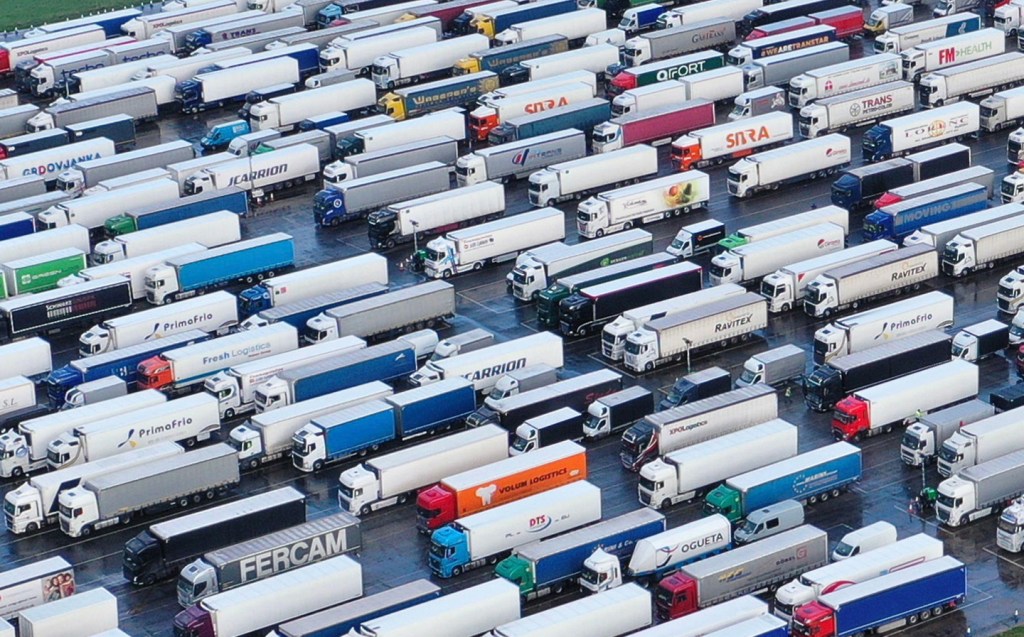
4. Will I be able to buy a second-hand petrol or diesel car after 2035?
The petrol and diesel car ban only affects sales of new vehicles, so yes, you’ll still be able to buy and sell used cars that are powered by combustion engines after 2035.
5. What will happen to the value of my petrol or diesel car?
Resale values of traditional combustion engine cars are expected to be hit as demand falls and cities outside London follow the capital in introducing ultra-low emissions zones.
As 2035 approaches, the values of used petrol, diesel and hybrid cars are expected to plummet, as manufacturers still offering new models for sale are likely to discount heavily.
6. Will I be forced to scrap my car in 2035?
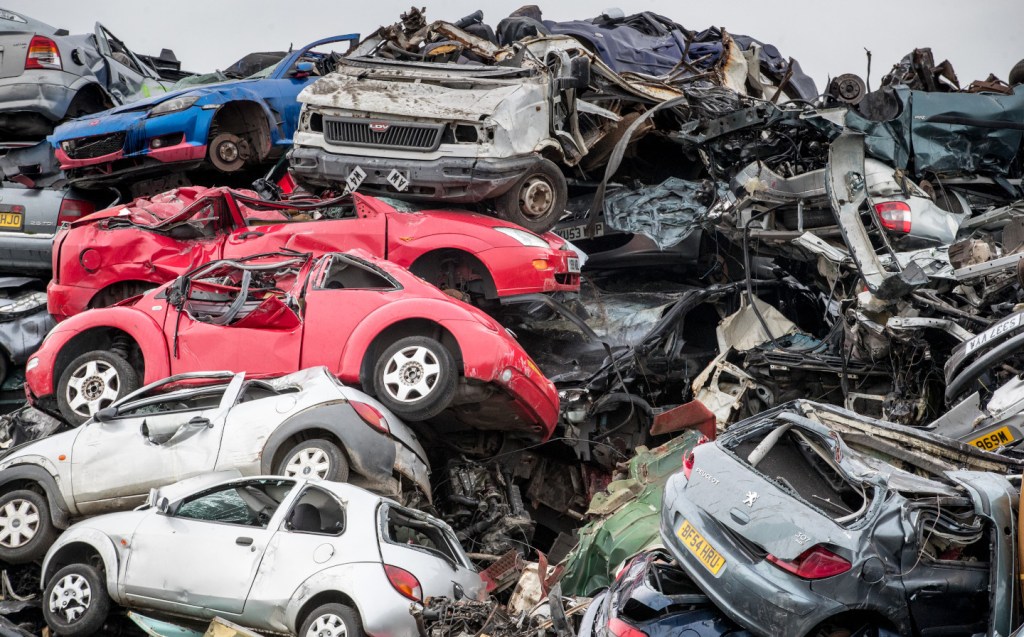
No, the petrol and diesel car ban is only on the sale of new combustion engine cars — those already on the road will still be legal to own and drive. As the average life of a car is 14 years, new petrol and diesel cars bought in late 2034 could remain on the roads until 2048 at least.
What happens after that is harder to predict. The government’s net zero by 2050 target means zero CO2 being produced across all sectors, and so combustion cars will prove to be a problem at that stage.
7. What will happen to classic cars after 2035?
At the moment there is no suggestion that classic cars powered by traditional petrol or diesel engines will be forced off the road.

There are more than half a million “historic” vehicles — those over 40 years old — on British roads and it is unlikely that will change. It is expected that in the twenty years or so following the petrol and diesel car ban, old-style fuels will become less sought after, more expensive and harder to come.
One solution to the problem might be an exemption to the ban for classic cars, which is a niche interest and so unlikely to make a significant contribution to climate change.
Another is for classics to run on e-fuels, which are carbon neutral when produced using renewable energy. Some manufacturers (Porsche in particular, which is investing heavily in the field) are touting e-fuels as a way to keep classic vehicles on the road indefinitely. While e-fuels don’t, at present, seem likely to play a big part in the future of transport as they’re too expensive to produce in the volumes required for widespread use, they could provide a valuable lifeline for classic car owners.
A more radical solution is conversion from petrol or diesel to electric.
8. Is it possible to convert my petrol or diesel car to pure-electric?
Yes, but it’s expensive. An engineer can remove the engine, transmission and fuel tank, and replace them with an electric motor, battery and other related components, but electric conversion company Electric Classic Cars charges £20,000 for a small car and as much as £60,000 for a large one. Insurers tend to charge more for modified cars, too.
Specialist kits are now being sold by the likes of Electrogenic, which does cut costs. And usually no extra holes need to be drilled in the chassis, so the conversion can be reversed. But conversion really is for the beloved, sought-after classic cars that we want to keep on the road, rather than mass-market runabouts.
9. How does the 2035 ban affect my current car finance deal?
For the 90 per cent of new cars bought on finance, the agreement remains valid for the duration, including any guaranteed minimum future value (GMFV), which estimates how much a car will be worth at the end of the contract. It is likely that there will be incentives for drivers to enter deals for electric models when existing leases end.
10. Are pure-electric cars expensive?
At the moment there is a premium on pure-electric cars as they are more expensive to make and demand for them is high relative to manufacturers’ production capacity. For example, in 2022 a Peugeot e-208 was around £6,000-£8,500 dearer than an equivalent petrol model.
However, as sales increase, economies of scale should mean the cost of production decreases, and prices will reduce. Price parity with petrol and diesel cars is expected by the 2030s, with some experts predicting it to happen as soon as 2024.
And prices of used electric cars are falling dramatically, as models begin to flood the market following their initial new-car finance deals.
11. Are there financial incentives to buy an electric car?
Not any more — at least no direct ones. In June 2022, the government announced that it was to axe the £1,500 Plug-in Car Grant, an incentive that had been around since 2011, citing “the success in the UK’s electric car revolution”.
While the up-front costs of buying an electric car remain higher than those of petrol and diesel models, then transport minister Trudy Harrison made the point that the potential saving in running costs made by switching to an electric vehicle would exceed £1,500 anyway.
There are other financial incentives for making the switch to an EV, though. Pure-electric car drivers pay zero VED (commonly known as road tax), are exempt from the London Congestion Charge and Ulez fees, pay less for servicing and maintenance and electricity is cheaper per mile than petrol and diesel. Company car drivers save a packet on Benefit in Kind taxation, too.
12. Will electric car running costs increase?
The government is looking to plug a £35bn gap in taxation as a result of people switching to electric vehicles, which pay no fuel duty or vehicle excise duty.
Increasing the number of toll roads has been suggested to help generate road tax, while in February 2022 the cross-party Transport Select Committee recommended the urgent introduction of pay-per-mile road pricing in order to plug the huge budget black hole. Such a system, the committee said, should work using satellite-linked trackers in every car, which poses obvious privacy concerns.
Road groups such as the AA and RAC are concerned that those living in rural areas, who are forced to drive further than those living in urban areas, will be negatively impacted, with the AA’s Edmund King suggesting “Road Miles” credits could be given to those living in more remote parts of the country. “Whatever system put forward must be equitable or it will back-fire,” he said.
When will diesel cars be banned?
The sale of all new pure-diesel vehicles will be banned from 2035, this includes cars and vans, with lorries being phased out. However, sales of used diesel cars will still be allowed beyond 2035.
When will petrol cars be banned?
Like diesel vehicles, the sale of all new petrol cars will also be banned from 2035. Again, though, existing petrol vehicles won’t be banned from the road, and you’ll still be able to buy and sell secondhand cars that are powered by petrol and diesel after 2035.
Related articles
- If you found our guide to the 2035 ban on petrol and diesel car sales helpful, you might also like our guide to London’s Ulez
- Britain to push back ban on new petrol and diesel cars to 2035, confirms Rishi Sunak (updated)
- UK needs ten times more electric car charging points by 2030
Latest articles
- Red Bull confirms Adrian Newey’s departure, but where next for the F1 designer?
- Lotus shows off its work on British Cycling’s Paris Olympics bicycle
- New Aston Martin Vanquish to get V12 engine with 824bhp
- Cupra updates Leon and Formentor with sharp styling and longer-range hybrids
- Extended test: 2023 Vauxhall Astra Sports Tourer GS PHEV
- Omoda 5 prototype review: Bargain family SUV is solid first effort for new Chinese brand
- Dacia Duster 2024 review: Rugged, affordable SUV modernised with electrification and quite the glow up
- Audi A3 Sportback 2024 review: Softly, softly, catchy premium hatchback buyer
- New electric-only Mini Aceman fills gap between Mini Cooper hatch and Countryman SUV


